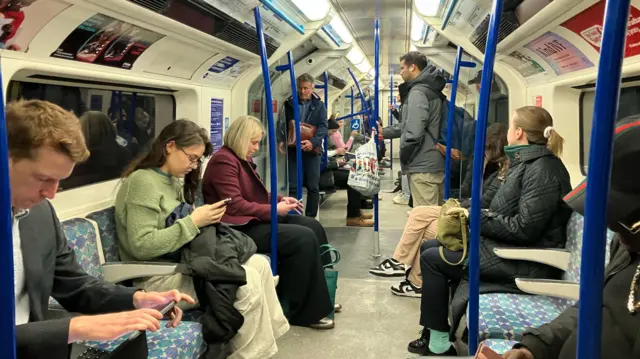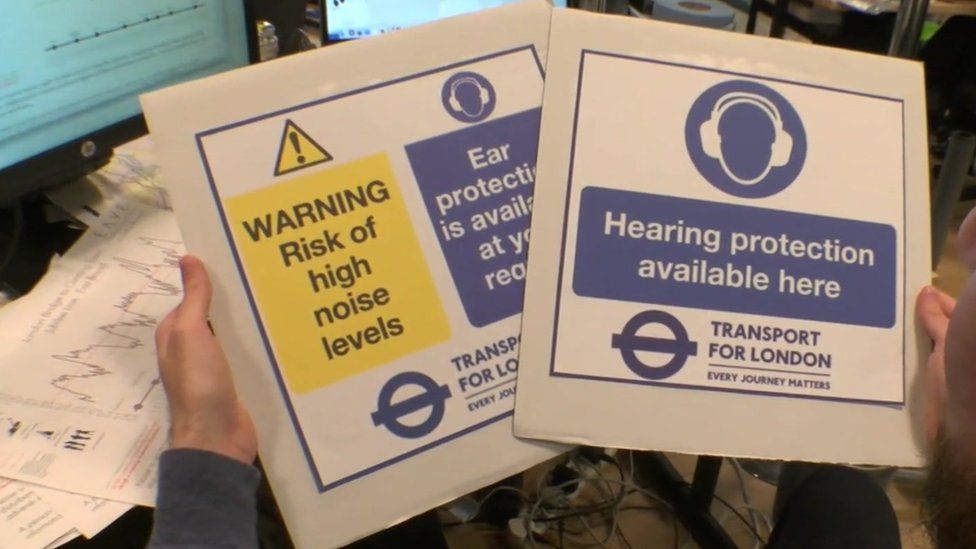We’ve all been there—packed on the tube or bus at rush hour, shoulder to shoulder, when someone blasts a video or phone call out loud like the carriage is their personal stage. It’s irritating, intrusive, and honestly, a bit wild in 2025. Finally, Transport for London (TFL) has called it out: they’re urging “nuisance” mobile users to wear headphones—not just for your comfort, but as a sign of respect for everyone around you.
Here’s why this small change means a lot—especially for young people navigating public life in a digital age.
1. It’s Not Just Noise—It’s Digital Disrespect
We live in an age where privacy is slipping away, even in public spaces. Loudphone users erase that thin line—sharing private conversations, video soundtracks, or who knows what with total strangers. It’s like saying, “I’m louder than you, and that’s fine.”
Saying “wear headphones” may sound minor, but it’s actually about reclaiming shared space. It’s about reminding each other that we live in communal zones—not broadcast stations.
2. Mental Health Matters—Even on TFL Services
Public transport isn’t just a ride—it’s a transit vortex for stressed students, night-shift workers, job-seeking grads, and creatives on the go. Loud distractions aren’t just annoying—they can disrupt the peace you struggle to find between multiple commitments.
Research shows noise pollution spikes anxiety and disrupts focus. That last-minute Spotify playlist or meditation session deserves peace. Let’s protect that mental zone.

3. The Digital Divide: Respecting Boundaries in a Connected Generation
Young people grew up connected. We know what it means to overshare, DM without filters, and lose boundaries. Loudphone culture is an extension of that—but we also get when it crosses the line.
Just as “don’t text in cinemas” became common sense, “wear headphones in public” should be the next rule. Use your volume for your space, not everyone else’s timeline.
4. It’s a Matter of Social Etiquette—Level Up
Loudphone behaviour isn’t just bad manners—it’s outdated social currency. F**k “I’m not fussy.” If you’re not using headphones, you are the noise.
When you control your sound, you show awareness. You show you’re courteous. You show you get that public spaces require more than self-expression—they require community.
5. Creating Respectful Habits Builds Better Public TFL Spaces
What if wearing headphones became normal? That shift could reshape how we behave in all shared spaces:
- Classrooms stay calm even after a commute.
- Libraries remain sanctuaries—even as more people study online there.
- Work spaces retain zones of focus regardless of proximity.
Respect is the vibe that lets us share city life without losing ourselves.
6. Digital Empathy: Let’s Build It
TfL’s message isn’t about policing behaviour—it’s about encouraging empathy. It nudges us to think: “How do my actions affect others?”
Young people are driving new etiquette—like sustainable streetwear, inclusive language, and mindful content consumption. This fits right in. Empathy doesn’t require extra effort; it requires awareness.
What You Can Do Next on TFL Services
- Invest in good headphones—not expensive, just considerate.
- Use that “nuisance” tag for a moment check: if your phone is loud enough to disrupt, rethink it.
- Lead by example—when someone’s phone is loud around you, a quiet “hey, can you use headphones?” can change the scenery.
- Share the vibe online—start a hashtag like #QuietCommute or #HeadphonesOnly to make it cool.

Final Vibe Check
This isn’t just about volume. It’s about restoring dignity to our daily journeys and making public spaces humane again.
Young people are the generation of tone setters. If we can get headphones to trend, respect to follow, we’re not just changing etiquette—we’re shaping culture.
So next time you’re on that packed carriage, ask yourself: “Am I adding to the vibe—or wrecking it?” Keep it quiet, keep it considerate, and keep building better public spaces—one headphone at a time.
Thank you for reading, click the link to read more of our Opinion Articles
Zita Salum, a British, Tanzanian journalist with a London heart, is making waves in the world of media. Born and Raised in Hackney London, she discovered her passion for storytelling at a young age. Her journey began as an admin for the Inside Success magazine, but her talent quickly shone through. Zita's ability to craft compelling narratives and her knack for capturing the essence of a story led her to become an editor for the magazine.
From there, her career soared. Zita has contributed to a diverse range of publications, including the prestigious W magazine, showcasing her versatility as a writer. Her expertise spans across industries such as music, corporate, political, sports, arts, and fashion. Beyond her written work, Zita has also excelled in broadcast journalism. Her natural ability to connect with interviewees and her engaging hosting style have made her a sought-after talent in the industry.
In her free time, Zita is a dedicated networker, attending industry events and immersing herself in the latest trends. She is also passionate about investigative journalism and has produced creative documentaries that shed light on important issues. With her talent, drive, and unwavering commitment to her craft, Zita Salum is undoubtedly a rising star in the world of journalism.




Leave a Reply
You must be logged in to post a comment.